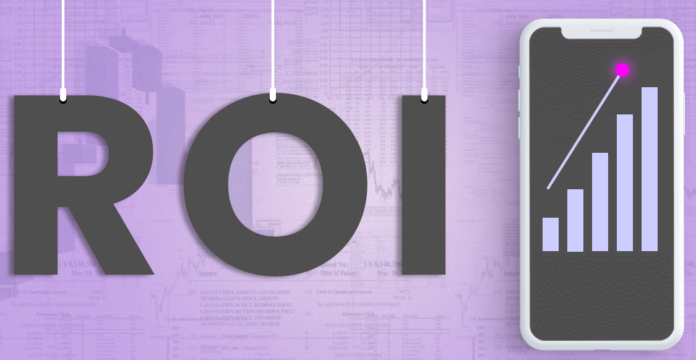Our everyday lives have grown completely dependent on mobile applications, which give us rapid access to services, entertainment, and information. The business of apps has expanded quickly as a result of the rising use of mobile devices, and competition is now fiercer than ever. You need to have a well-defined budget and marketing strategy to make your mobile app stand out and provide a return on investment (ROI).
A budget must be set up because creating a mobile app takes a sizable time and resource commitment. You can properly manage resources and make decisions during the development process with the aid of a budget. To make sure that your software reaches your target audience and makes money, a marketing strategy is also necessary.
Strategies for user acquisition, engagement, retention, and monetization are all part of a successful marketing campaign. For those of you that have money and marketing settled then you probably need some help building the app. If this is the case, we got you, check out builder.ai and build your first app effortlessly.
To assist you optimize the return on your mobile app investment, we’ll look at some best budgeting and marketing practices in this post. We’ll go over how to identify your target market, create a budget, perfect your app store listing, advertise on social media, and utilize analytics to track how well your app is performing. You may improve your app’s exposure, get more users, and eventually raise your income by adhering to these best practices.
Define Your Target Audience

It’s crucial to identify your target market before you begin designing your mobile application. You may develop an app that satisfies your audience’s demands and maintains their attention by being aware of their needs, interests, and preferences. In turn, this can raise your ROI and assist your app’s retention rate. Your target audience can be determined in a variety of ways:
- Conduct market research: Researching the behaviour, tastes, and problems of your target market might be helpful. This can assist you in developing an app that caters to their wants and alleviates their problems.
- Analyse your rivals: Examining the apps of your rivals might help you learn what is and is not successful in your sector. This might assist you in developing a stronger app that stands out from the crowd.
- Utilize analytics software You can better understand user demographics and behaviour by using analytics tools. This might assist you in determining your target market and developing a more focused marketing approach.
Develop a Budget

For your mobile app to be successful, you must create a budget. It’s critical to comprehend the expenses involved in creating and promoting your app and to spend your money appropriately. Include costs for customer acquisition, app store optimization, app development, and advertising in your budget. Here are some pointers to assist you in creating a budget:
- Create a reasonable budget by doing your homework on the costs involved in app development, marketing, and user acquisition.
- Prioritize your spending for better budget allocation. Prioritizing your expenses can assist. For instance, you could want to set aside more money in the beginning for app development and more later on for user recruitment and promotion.
- Create a contingency plan: Having a contingency plan in place may help you avoid unforeseen costs and guarantee the success of your app development and marketing efforts.
Focus on App Store Optimization (ASO)

The practice of enhancing your mobile app to appear higher in the app store’s search results is known as app store optimization (ASO). You should concentrate on ASO if you want to increase downloads and the exposure of your app. The following are some ASO best practices:
- Aim for clarity, succinctness, and relevance for your target audience when creating the title and description for your app.
- Use appropriate keywords: A higher ranking in the app store’s search results may be achieved by including pertinent keywords in your app’s title, description, and metadata.
- Have an app icon and screenshots of excellent quality: The images and icons for your program should be aesthetically appealing and highlight its capabilities and advantages.
Use Social Media to Promote Your App

A potent technique for advertising your mobile app is social media. Facebook, Twitter, and Instagram are a few examples of social media sites you may use to connect with your target market and spread the word about your app. Here are some efficient strategies for social media promotion:
- Run social media advertisements: You may expand your audience and increase app downloads by running social media advertisements.
- Create compelling content: By producing interesting articles, infographics, and videos, you can engage your audience and foster a sense of community for your app.
Collaborate with Social Media Influencers

You may expand your audience and increase app downloads by working with social media influencers. On social media, influencers have a sizable following, and those followers trust their advice. Here are some pointers for working with influencers on social media:
- Find influencers in your field by researching people who are well-known in the field and whose followers are similar to those of your target market.
- Contact influential people: Send emails or messages on social media to influencers and introduce them to your app. Give them rewards for promoting your apps, such as unrestricted access to it or cash payments.
- Follow up on your campaign: See how your influencer campaign is doing by keeping an eye on it. Track your app downloads and user interaction with analytics tools.
Use App Analytics to Measure Your App’s Performance
You can evaluate the effectiveness of your app and pinpoint areas for development with the aid of app analytics. The following are some important app analytics metrics you should monitor:
- Tracking your app downloads can help you determine how well your user acquisition strategies are working.
- Monitoring your app’s user retention rate will enable you to gauge how involved your users are with it.
- Tracking your in-app purchases can help you see how users are making money off of your app.
To Sum Up

To sum up, creating a mobile app alone won’t guarantee its success. You must have a budget and marketing strategy in place if you want to optimize the ROI of your mobile app. Some best practices to assist you in achieving your app’s objectives include defining your target market, creating a budget, concentrating on app store optimization, utilizing social media to advertise your app, and using app analytics to track your app’s success.








